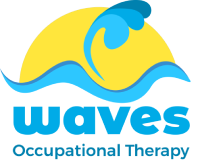Private Occupational Therapy Assessments
Occupational Therapists offer various assessment types. Furthermore, assessments play a crucial role in the Occupational Therapy process as they enable therapists to gather essential information about your child’s experiences and difficulties. You can complete assessments in different settings, whether at school, home, or one of our clinic spaces.
The purpose of assessments in occupational therapy
Occupational therapists conduct assessments for four primary purposes:
- To identify and assess concerns or difficulties and their impact on daily activities.
- To prioritise the most significant concerns.
- To naturally observe the child while engaging in activities at school or home.
- To observe social relationships and their influence on activities.
Our assessments will analyse your performance in daily activities, and as a result, inform the development of a therapy plan. Specifically, daily activities encompass typical childhood activities in three main areas: play, school, and home life.
These activities include tasks like tying shoelaces, dressing, maintaining balance during play, and handwriting.
List of available Occupational Therapy assessments:
Our comprehensive assessments are conducted by highly trained and experienced occupational therapists. To illustrate, here is a selection of the assessments we offer:
- Dyspraxia Assessment / Movement ABC
- Handwriting Assessment / Detailed Assessment of Speed of Handwriting (DASH)
- Functional Assessment
- Equipment Assessment
- Home adaptations
- Sensory Assessment
- Primitive Reflexes Assessment
- Therapeutic Listening programme
Please note that this is not an exhaustive list, and if you require a different assessment, kindly get in touch with us.
Key components covered in most Occupational Therapy assessments include:
- Evaluation of how the condition affects daily functioning.
- Assessment of its impact on the child’s school and home environments.
- Examination of social and behavioural implications.
- Provision of further recommendations for treatment.
Occupational therapy is dedicated to helping your child achieve their full potential and enhancing your functional abilities both at home and in the school setting. For more information about how Occupational Therapy can benefit your child or to inquire about any of the assessments mentioned, please contact us via email or call.




